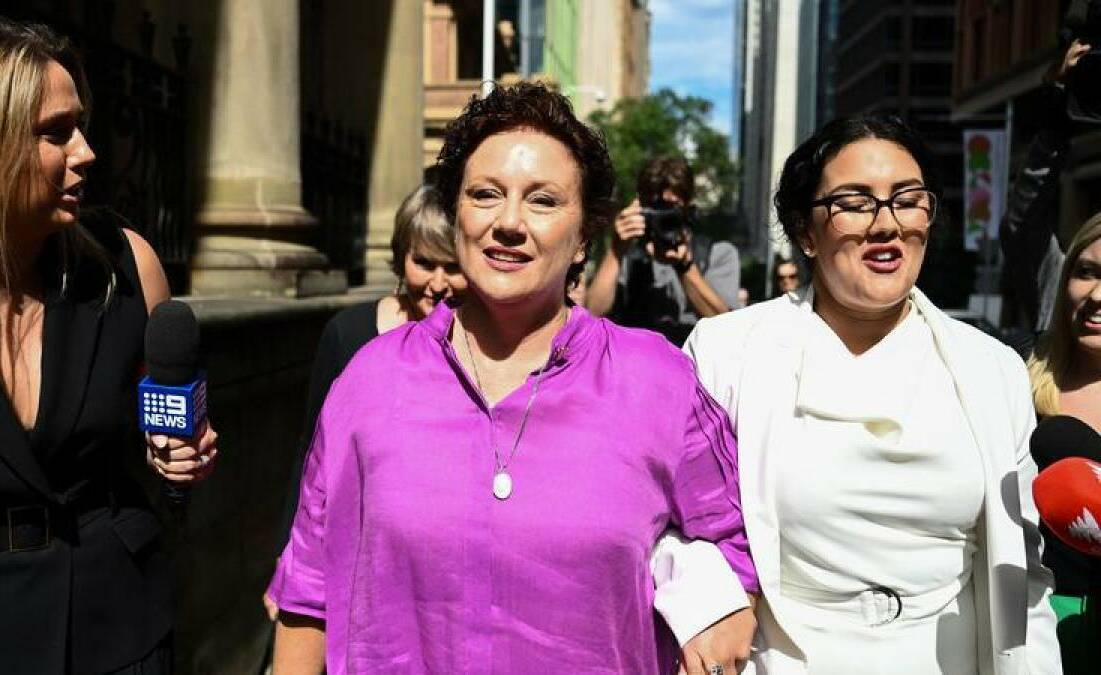
KATHLEEN Folbigg has reportedly moved back to Newcastle as she adjusts to life beyond her quashed convictions.
The 56-year-old, who spent two decades behind bars on charges related to the deaths of her children, was pardoned last year.
An independent inquiry heard new scientific evidence that indicated there were natural causes to explain the deaths.
Speaking to a Sunday newspaper about her return to the Hunter, Ms Folbigg described it as "my home where I grew up, met my friends, loved, lost and now return to".
"I am home," she told NewsCorp.
"I have gotten myself settled and back into the routine of life I knew I could be in," she said.
"I have friends here and a good solid support system. I cherish that and all that are part of this circle."
Ms Folbigg had been living with friend Tracy Chapman on the north coast.
"I am forever grateful to my dearest sister friend Tracy for giving me a safe and secure home to come out to when I was released from prison on that fantastic day," she said.
"The time that I spent there reuniting and reconnecting with her and her family are treasured memories.
"Sadly I needed it just to teach me how to reconnect with the world that I did not know how to navigate as it has changed a lot".
The NSW Court of Criminal Appeal quashed Ms Folbigg's convictions late last year, months after her release from jail.
In an emotional statement following that decision, Ms Folbigg said her "children are here with me today and they will be close my heart for the rest of my life".
"I loved my children and I always will," she said.
"For almost a quarter of a century, I faced disbelief and hostility. I suffered abuse in all its forms. I hoped and prayed that one day I would be able to stand here with my name cleared."
She thanked the "huge efforts" of her support network, legal team and the scientific professors who provided new genetic evidence that helped quash the conviction.
Ms Folbigg was also extremely critical of the initial case against her and of the nation's legal system.
"The case against me was always about my diaries and Meadow's Law ... they cherry picked words and phrases from my journals," she said.
"Those books contained my private feelings, which I wrote to myself. No one expects those type of things to be read by strangers, let alone opinionated on.
"They took my words out of context and turned them against me. They accused me of something I never wrote about, never did and never could do. I hope that no one else will ever have to suffer what I suffered.
She said even in 1999, "we had legal answers to prove my innocence", but they were ignored and dismissed.
"The system preferred to blame me rather than accept that sometimes children can and do die suddenly, unexpectedly, heartbreakingly," she said.
"The system and society need to think before they blame a parent of hurting their children.
"We need to be humble and open to improving the system to ensure truth is revealed; because truth and the correct legal outcomes matter."
Greens MLC and former lawyer Sue Higginson said in December that the Folbigg matter shone a light on how "ineffective, discretionary and unfair" the post convictions review system really was.
"The new evidence that led to Kath being exonerated first came to light in 2018, but the response was dependent on the decision of the Attorney General, which ultimately makes it a political decision," she said.
"We need a post-conviction review system that is based on procedural fairness, effective administration, and the rules of evidence.
"Other jurisdictions around the world have had such systems for decades, NSW is an outlier. What happened to Kath and is still happening to other people across the state who maintain their innocence is wrong."
In a final report released in November, inquiry commissioner Tom Bathurst KC found there was an "identifiable cause" for three of the deaths and Folbigg's relationship with her children did not support the case that she killed them.
The report was sent to the appeal court.
"While the verdicts at trial were reasonably open on the evidence available, there is now reasonable doubt as to Ms Folbigg's guilt," NSW Chief Justice Andrew Bell said on Thursday.
"It is appropriate Ms Folbigg's convictions ... be quashed."
The appeal judges agreed with Mr Bathurst's finding that the mother's diary entries - controversially used during her trial to help secure her convictions - did not contain reliable admissions of guilt.
Folbigg consistently told police and a previous inquiry the entries reflected her feelings of failure as a mother after the deaths of three of her children.
The children, Caleb, Patrick, Sarah and Laura, died between 1989 and 1999 at ages ranging from 19 days to 18 months.
"(I) grieve for my children and I miss them and love them terribly," Folbigg said in a video following her release in June.
A rare genetic variation was a "reasonably possible cause" of Sarah and Laura's deaths, according to cardiology and genetics experts.
Myocarditis, an inflammation of the heart, was another possible cause of Laura's death.
- with Jamieson Murphy and Jack Gramenz







